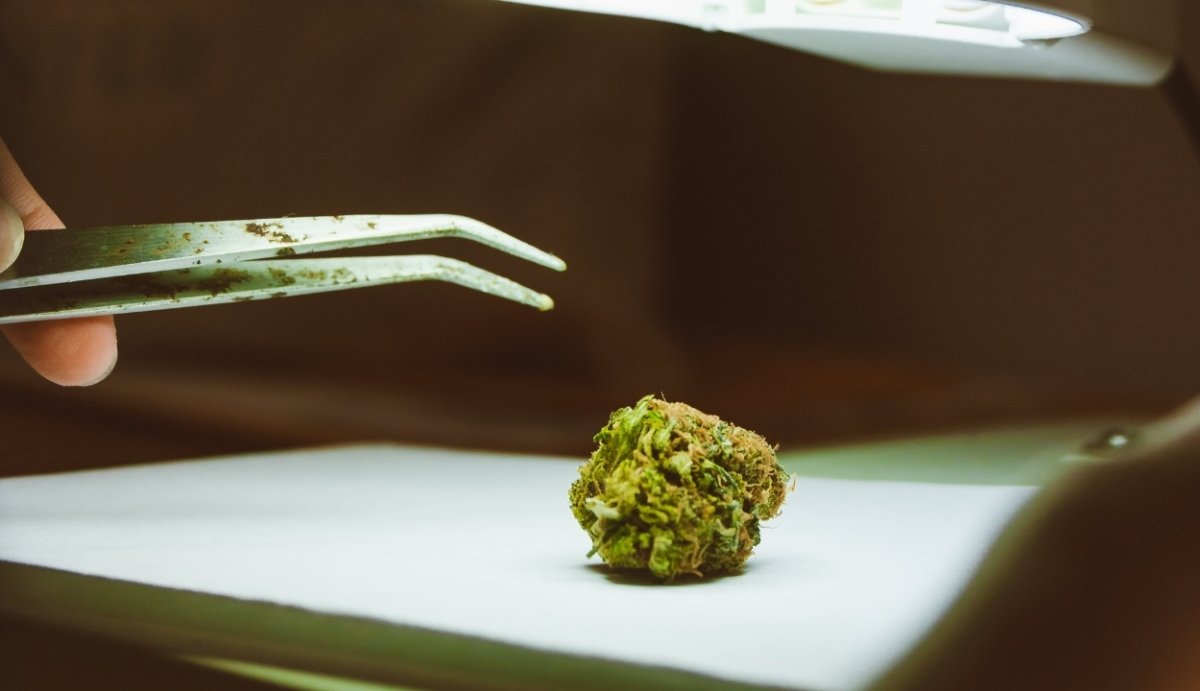Your Cart is Empty
FREE SHIPPING ON ALL ORDERS $75+
Despite being discovered 50 years ago, Delta-11-THC distillate is one of the most potent and intriguing hemp-derived products on the market today. It's federally legal, accessible, and known for its psychoactive effects that are three times stronger than traditional Delta-9-THC.
The key question is, how is Delta-11 distillate extracted to maintain its legal status while delivering such potent, relaxing effects?
The extraction of Delta-11-THC distillate involves a process called isomerization. This method converts one cannabinoid, typically CBD, into another, in this case, Delta-11. The source of the original CBD is crucial to ensure that the final product is compliant with federal laws, which require it to contain less than 0.3% Delta-9-THC.
In order to fully understand what makes Delta-11 so special, let's dig into the details of Delta-11 distillate extraction:
Table of Contents
Delta-11 From Hemp vs Marijuana
How is Delta-11 Distillate Made?
How is Delta-11 Distillate Extracted?
Is Delta-11-THC Distillate Synthetic?
Finding Legal Delta-11 Distillate Near You
Resources
Delta-11 distillate is a highly concentrated form of Delta-11-THC, a potent cannabinoid derived from hemp. This distillate is typically refined to remove impurities, resulting in a pure, potent substance. It is used in various THC products, such as vape cartridges, edibles, and tinctures, and is valued for its intense psychoactive effects.
Delta-11 is so potent that many people find that they need to take far less Delta-11 than they would Delta-8 or Delta-9.
Because Delta-11 distillate is derived from hemp, it is federally legal and legal in many states as long as it contains less than 0.3% Delta-9-THC. This makes it a popular choice for those seeking strong THC experiences in a legal and accessible form.
Delta-11-THC distillate can be derived from both hemp and marijuana, but only the hemp-derived version is federally legal.
The isomerization process used to make Delta-11 distillate involves converting CBD into Delta-11. This method is what allows Delta-11-THC distillate to meet federal hemp laws, distinguishing it from marijuana-based THC products.
Delta-11-THC distillate is made by converting CBD through isomerization. This involves rearranging the CBD molecule by exposing it to acids or other chemicals, creating Delta-11.
This isomerization process is similar to other hemp-derived cannabinoid conversions, like those used to make Delta-8 and Delta-10-THC products. After conversion, the resulting Delta-11-THC distillate is refined to remove impurities and ensure purity.
True Delta-11 distillate is 90-99% pure and doesn't have the weed smell of many hemp products. That's because it's free of terpenes, the aromatic compounds that give cannabis its pungent fragrance.
In the end, many manufacturers decide to add terpenes back to the final formula. While this may slightly lower the Delta-11 potency, its usually worth it. Terpenes are associated with potent therapeutic effects and are the primary reason that different cannabis strains can produce such diverse effects.
The extraction of Delta-11 distillate starts with extracting CBD from hemp using one of many CBD extraction techniques. This methods may include solvent-based extractions like ethanol, solventless extractions like CO2, or oil-based extractions.
Once the CBD is extracted, it is converted into Delta-11-THC distillate through isomerization. The final product is then refined to remove any residual solvents or other contaminants.
Delta-11-THC distillate is not synthetic; it is derived from natural hemp sources through isomerization. Unlike synthetic cannabinoids made from artificial chemicals, Delta-11-THC distillate starts as natural CBD. The conversion process is carefully controlled in a lab to ensure a pure and legal product that meets federal standards.
When searching for Delta-11-THC distillate, ensure it's derived from hemp and meets federal requirements. At Vida Optima, all our products are made from U.S.-grown hemp and are 100% Farm Bill compliant. To explore our selection of legal hemp THC products, check out our Cloud9 and Elev8 collections.

Yes, Delta-11 is generally stronger than Delta-8. Delta-8 is known for its mild psychoactive effects, while Delta-11 is more potent and can be up to three times stronger.
Choosing between Delta-9 and Delta-11 depends on personal preference. Delta-9 is the classic form of THC found in marijuana and has well-known psychoactive effects. Delta-11 is considered more potent and might offer a different experience. If you're looking for a more intense high, Delta-11 could be a better option, but it might not be ideal for everyone.
Delta-10 and Delta-11 are both hemp-derived THC isomers, but Delta-11 is generally more potent than Delta-10.
Delta-10 is known for its uplifting and energizing effects, making it a popular choice for daytime use. Delta-11, on the other hand, offers a more intense high and is often associated with a strong body-centric effect. Your choice between the two may depend on the type of experience you prefer.
11-hydroxy-THC (11-OH-THC) is a psychoactive metabolite of THC, known for its faster onset and more intense effects. This metabolite is created when the body processes THC, and it is particularly effective for people seeking fast relief from chronic pain. Its increased potency and quicker action may offer unique therapeutic benefits compared to other THC forms.
Delta-11 typically contains the Delta-11-THC isomer, often derived from hemp. The composition may vary depending on the product and manufacturing process.
Some Delta-11 products may contain additional cannabinoids, terpenes, or other ingredients to create specific effects or flavors. Always check the product's lab results to understand its composition and ensure it meets legal requirements.
Comments will be approved before showing up.



